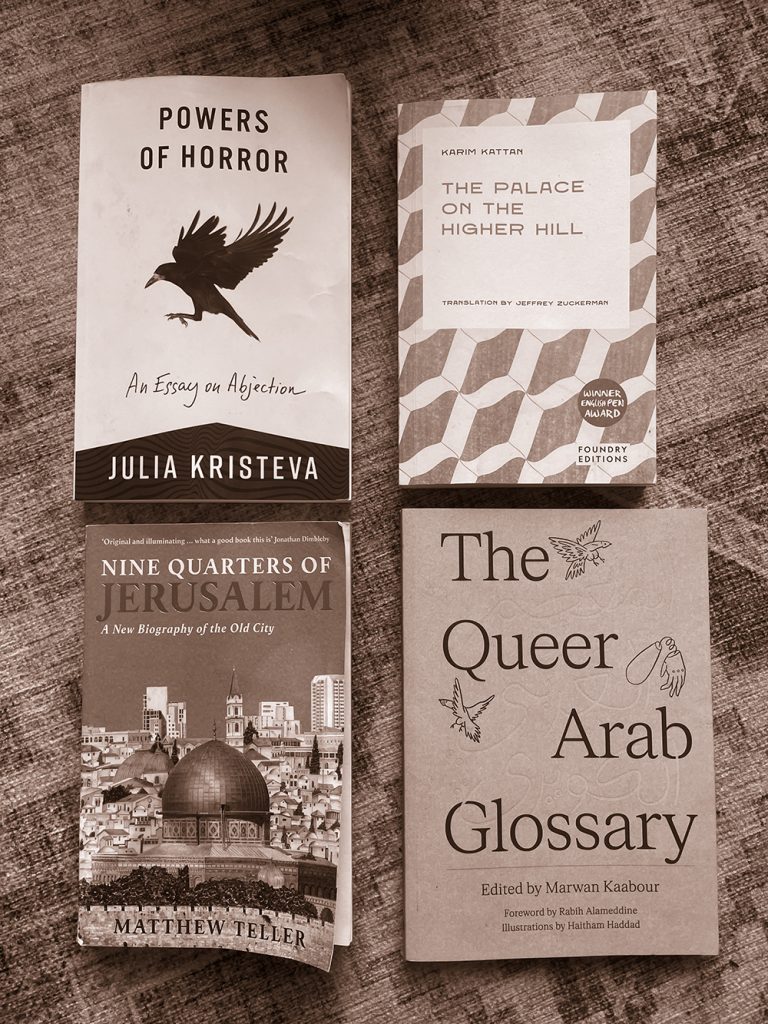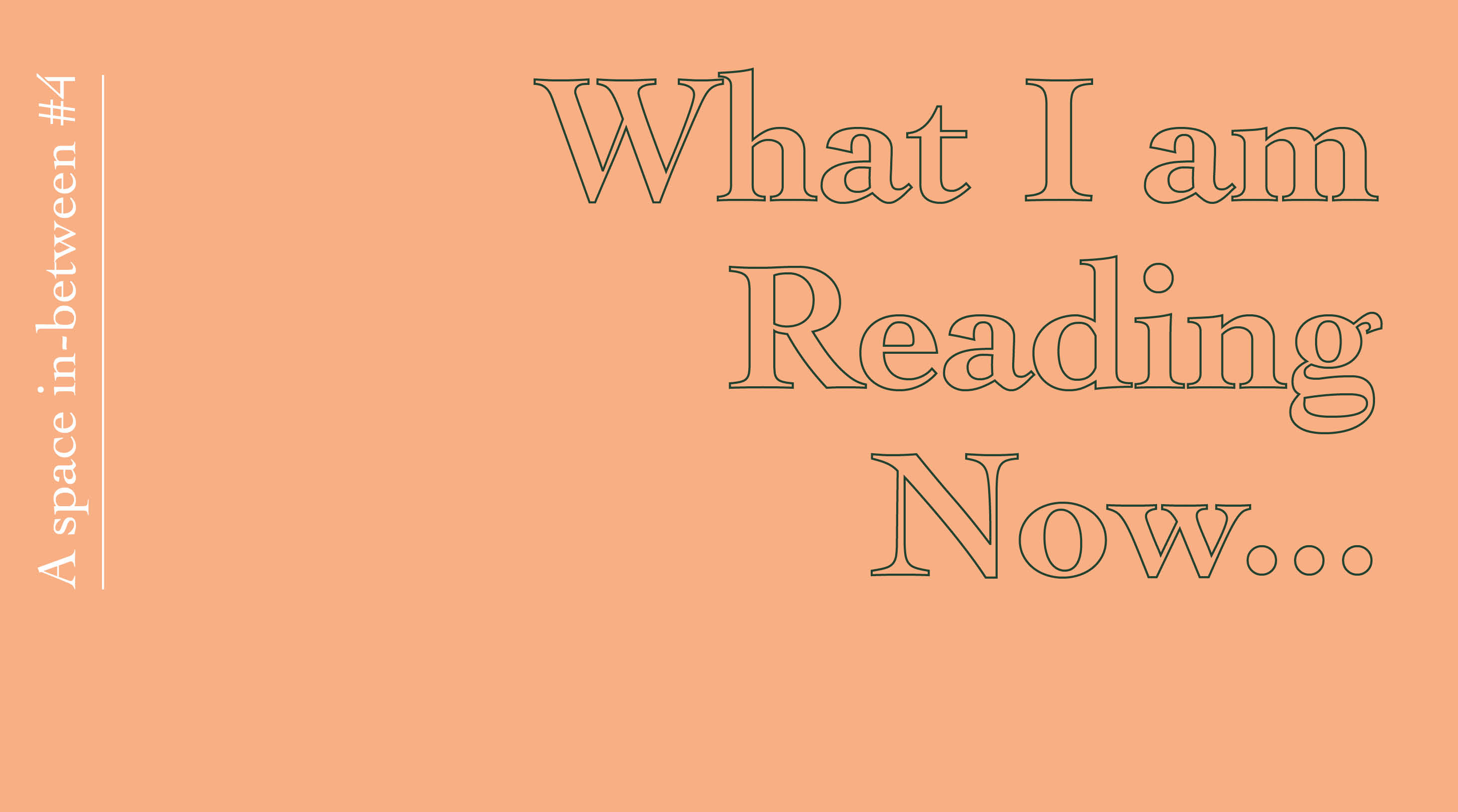What I am Reading Now…
Anbara Salam
June 2025
Lately I’ve been returning to Julia Kristeva’s work Powers of Horror: An Essay on Abjection. Originally published in France in 1980, Kristeva explores the particular category of horror that she terms the abject. The abject includes experiences that defy easy categorisation,
‘It is thus not lack of cleanliness or health that causes abjection but what disturbs identity, system, order. What does not respect borders, positions, rules. The in-between, the ambiguous, the composite.’[1]
For me, this is one of the most thoughtful critical works on horror, both in the way that it works discursively as well as an examination of its own genre traditions. Kristeva argues that abjection forces a re-classification of ambiguous boundaries, and in this way, formalises identity in reaction to the ‘other’. I have been re-reading this piece partly as a way to reflect on my own practice while writing Gothic fiction, but also as a way of thinking about living with the cognitive dissonance of the ongoing horror of the genocide against the Palestinian people. It’s hard to consider the meaning of art and fiction in this context, as a writer and as a reader. Many of my Palestinian friends have found it difficult to read fiction over the last year, feeling that they are so saturated by real life, real time horror that for their private reading the only works that ‘make sense’ to them are those that play with the rules of reality: speculative fiction, science fiction, the Gothic. Powers of Horror is a work that I have returned to again and again over the last ten years because Kristeva articulates something that inherently rejects articulation, how slippery and metonymically the artefacts of horror imprint themselves on the psyche, and how easy those can be weaponised to manufacture identity in times of crisis.
A novel that skirts the edges of speculative horror is Karim Kattan’s debut, The Palace on the Higher Hill, translated from the French by Jeffery Zuckerman. The book is almost Gothic in its exploration of a neglected Palestinian mansion and its both real and imagined intruders. Kattam’s prose is poetic, dreamlike, brutal, and tender. It’s a hypnotic novel that teases out shadows, fate and family secrets and is such a compelling read.
Matthew Teller’s Nine Quarters of Jerusalem: A New Biography of the Old City is a narrative history of Jerusalem that considers the city from the perspective of the different gates and punctures the too-neat category of the ‘quarters’. It’s vivid, extremely readable and deeply human. His sequence about the Jerusalemite pigeon had me laughing out loud. Reflecting on diasporic Arab identity in the current moment feels almost narcissistic, but something that books like Nine Quarters of Jerusalem illuminate is that there is no such thing as one ‘authentic’ experience of a city like Jerusalem and that perhaps the more a place is written about, the more susceptible it is to layers of myth making.
A special mention to The Queer Arab Glossary edited by Marwan Kaabour which is a defiantly joyful book even as it captures the derogatory nature of much colloquial language about the queer Arab experience. The illustrations by Haitham Haddad are gorgeous, witty and irreverent, and the eight essays included in the collection sensitively explore the multiplicity and rootedness of queer Arab identity.
[1] Kristeva, Julia. Powers of Horror: An Essay on Abjection. (New York, 2024). P.4.
Anbara Salam is a Scottish-Palestinian author of the novels Things Bright and Beautiful, Belladonna, and Hazardous Spirits, which was shortlisted for Fiction Book of the Year in Scotland’s 2024 National Book Awards presented by the Saltire Society. Her forthcoming novel, The Salvage, will be published in November 2025.
Reading
The Palace on the Higher Hill, Karim Kattan (Foundry Editions, 2025)
Nine Quarters of Jerusalem: A New Biography of the Old City, Matthew Teller (Profile Books, 2022)
The Queer Arab Glossary, Marwan Kaabour (Saqi Books, 2024)
Powers of Horror: An Essay on Abjection, Julia Kristeva (Columbia University Press, 2024)

Please note the views published in What I am Reading Now… are personal reflections of the contributors.
These may not necessarily represent the views of the University of Dundee.
Readers who wish to make a donation to support Medical Aid for Palestinians can do so here.
———
Previous Issue: nussatari, May 2025
Next Issue: Nat Raha, July 2025
